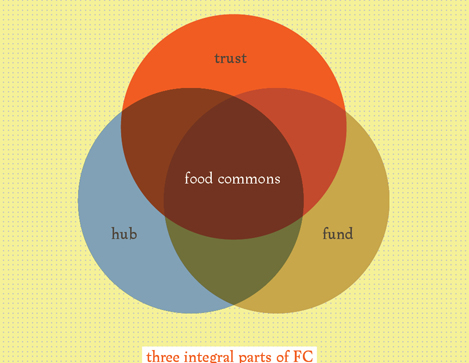In the main, the economic model for the U.S. food and agricultural industry has for decades been evolving into one which is often predicated on scale, technology and serving large enterprises and global markets. While this model serves many contexts, a natural casualty of that evolution seems to have been the formerly close connection of local or regional food enterprises with their related populaces. This disconnection can lead to the undesired effect of stunting local opportunities for market entry and entrepreneurship, not to mention providing better match of local needs with local resource.
It is well-recognized that food and health are inextricably linked, and that dependable food access and affordability are critical links for any populace. It seems evident that if a portion of the local or regional ag value chain is predicated on uniquely meeting local needs and opportunities, it will not only benefit that segment, and its many stakeholders, but also the durability and viability of the industry as a whole. Given this dynamic, the notion of Food Commons was born to better meet not only local or regional challenges, but also to provide new opportunities for local interests, no matter their place in the overall system.
The Food Commons has developed an alternative path by re-envisioning a re-creation of the local and regional food systems that preceded the current global industrial food systems, updated to reflect 21st-century advances in information systems, communications, community-based organizational and economic models, the science and practice of sustainable agriculture and the changes in culture and demand.
The Food Commons model will leverage, support and enhance existing and emerging regional food system initiatives to offer the American public a wide range of benefits that may not be as widely distributed in our current food system.
The Food Commons model will:
- Make healthy and sustainably produced food accessible and perhaps more affordable to all.
- Enable food enterprises within and across foodsheds to efficiently produce and exchange goods and services that meet high common standards.
- Capture benefits of scale in infrastructure, asset management, financing, information systems, marketing, and learning, while preserving local identity, ownership, control, diversification and accountability.
- Transparently and seek to equitably distribute common benefits along the value chain from farmers, ranchers, and fishers to distributors, processors, retailers, workers, consumers, and communities.
- Harness underutilized foodshed assets and protect and steward those assets for current and future generations.
- Foster and celebrate regional foodshed identities that generate widespread consumer awareness, participation and buy-in.
- Create a wealth of new small businesses and jobs and build a skilled and respected 21st-century food system workforce.
The Food Commons has designed a model that will connect local and regional food system enterprises in a cooperative national federation that enhances their profitability and sustainability while creating and supporting a robust system of local community financing, ownership, management and accountability.
The Food Commons model has three integral components:
- The Food Commons Trust, a non-profit, quasi-public entity to acquire and steward critical foodshed assets
- The Food Commons Financing Arm, a community-owned financial institution that provides capital and financial services to foodshed enterprises
- The Food Commons Hub, a locally-owned, cooperatively integrated business enterprise that builds and manages foodshed-based physical infrastructure and facilitates the complex logistics of aggregation and distribution at different scales among all the moving parts of the system, and provides scale economies, business services, technical assistance and training to new small food businesses.
The Food Commons model is a new economic paradigm and whole system approach for regional food.
In order to move the Food Commons model from vision to reality the Food Commons nonprofit is pursuing the following near-term objectives to advance development of the Food Commons concept:
- Develop the Food Commons Financing, Hub and Trust models.
- Identify partners and resources for a Food Commons prototype project, which will be developed through separate entities.

